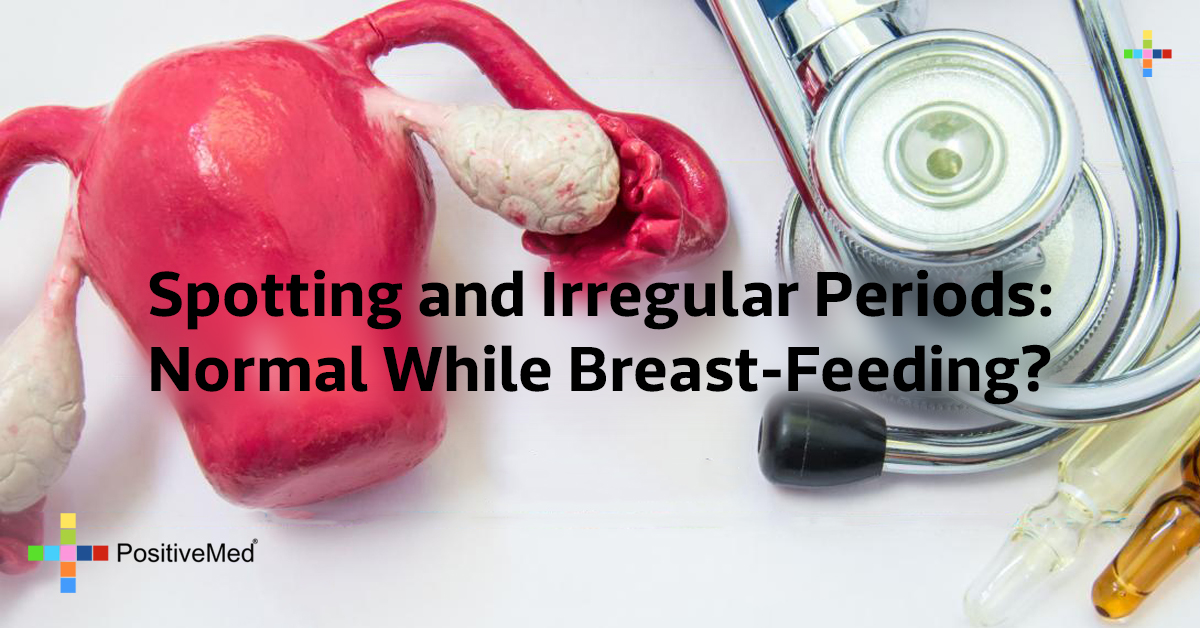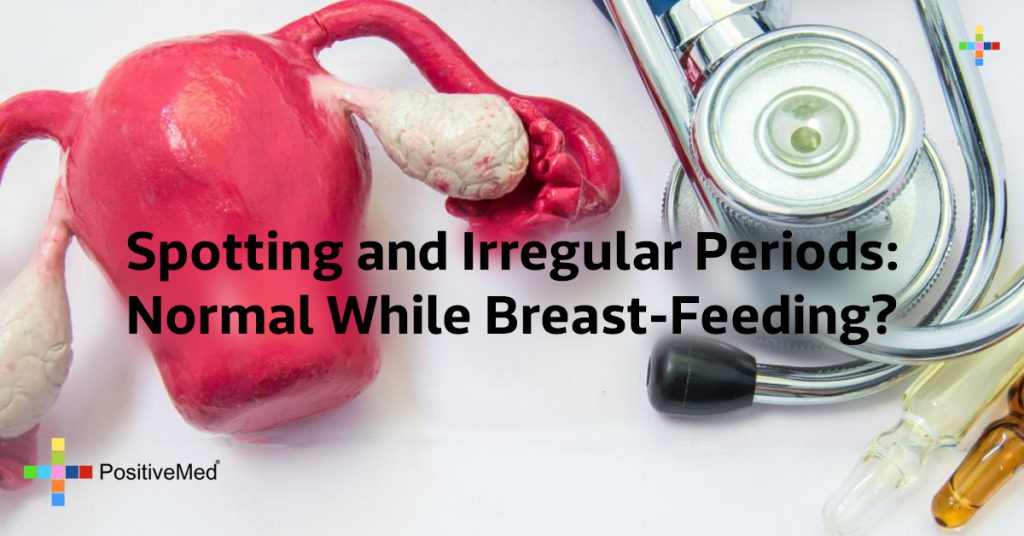Some psychologists believe that breastfeeding creates a wonderful deep bond between mother and baby. Those women who can breastfeed have been taught that it generally takes six months for their period to begin again. However, every new mother is unique, and the ovulation times can vary. Some get their period again 12 weeks after they delivered. Others don’t see their period return for a full year. Relax, ladies. Spotting and irregular periods are normal.

After giving birth, your hormones are out of control and need time to readjust. In addition, the uterus has not returned to its normal size yet. The body will slowly recover from pregnancy and childbirth. Breastfeeding and non-breastfeeding mothers can experience these same issues.
Hormones that support breastfeeding are shifting, and this can cause spotting and irregular periods. Before their period begins, a lot of women feel moody and easily irritated. Physically, many new mothers also notice their nipples becoming overly sensitive.
How often you are nursing your baby can also affect spotting and/or irregularities of your period. How long your baby sleeps at night is another factor that can affect your cycle. Whether or not your baby takes a pacifier can have an impact on a new mother’s menstruation. Some studies show that the baby’s binky use can affect an earlier return to menstruation.
For many mothers, breastfeeding is a joy, but most women have questions and uncertainty about it. There is nothing embarrassing about having questions and asking a lactation expert for some answers. Your body will return to its regular cycle in time. Don’t compare yourself with other mothers; each person is unique. Every mother has a different story.
Some lactation consultants believe that you will get your period again when you start introducing solids to your baby. If you sleep for more extended periods of time, this can jumpstart your period, too.
The hormone progesterone can also play a key role. It has to do with the natural amount of progesterone in your body. For example, if you have lower levels of progesterone, you’re likely to get your periods back earlier. If you were tested at higher progesterone levels, then menstruation would be delayed.
What constitutes an irregular cycle?
Your OBGYN will tell you that an irregular cycle is either shorter or longer than the typical 28 days. Breastfeeding and irregular cycles often go hand-in-hand.
If you are worried about constant spotting or heavy periods, then check with your doctor. Sometimes, these issues can be caused by uterine fibroids, ovarian cysts, extreme weight loss, etc.
Hormonal changes are often the leading cause of spotting and irregular periods during breastfeeding. Many times, we feel alone as new mothers and have plenty of questions. Are we doing it right? Is my baby receiving enough milk?
Giving birth is an amazing feat. Your body requires time to bounce back with ovulation and menstruation.
Wherever you are on your breastfeeding journey, you are doing a great job






